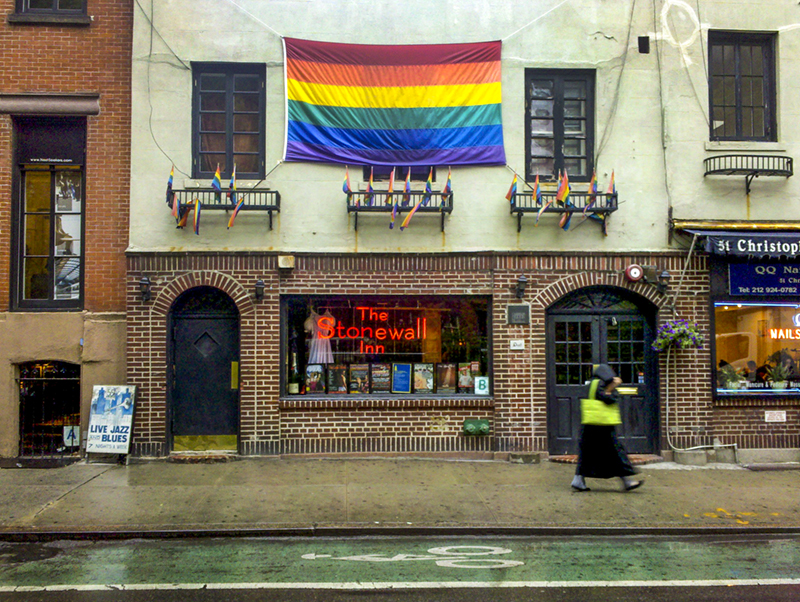DC moves trans woman out of men’s prison, but her lawsuit continues
Class-action lawsuit challenges the D.C. Department of Corrections' policy of assigning housing based on prisoners' genitalia.

A transgender woman who sued the District of Columbia over a D.C. Department of Corrections policy that placed her in a men’s unit has been transferred to a women’s unit, but her class-action lawsuit seeking to permanently alter the policy will continue.
Sunday Hinton, a transgender woman who faces a charge of unarmed burglary for allegedly trying to steal $20, sued the District of Columbia last week after being placed in a men’s unit based on a Department of Corrections policy that houses prisoners based on their genitalia, their biological sex at birth, and whether they’ve undergone gender confirmation surgery.
In her lawsuit, Hinton has alleged that DOC’s policy is unconstitutional and discriminatory against Hinton and other transgender individuals, violating not only their Fifth Amendment rights under the U.S. Constitution, but prohibitions on discrimination based upon sex and gender identity in the D.C. Human Rights Act.
The lawsuit also alleges that housing transgender women in men’s units put them at higher risk of sexual assault, rape, and abuse. While DOC policy offers the possibility of protective custody for certain prisoners, including transgender women, Hinton’s lawyers argue that protective custody amounts to solitary confinement by another name, which can cause a host of mental health problems if a person is kept in solitary for an extended period of time.
Under current DOC policy, transgender prisoners may be reassigned to housing based on their gender identity, if they receive a recommendation from DOC’s Transgender Housing Committee, a body comprised of DOC staffers, a doctor, a social worker, a mental health clinician, and members of the local transgender community. However, due to the COVID-19 pandemic, the Transgender Housing Committee had failed to hold any meetings, even virtually, for more than a year until Friday, when it held an emergency hearing to deal with Hinton’s request to be placed in a women’s unit.
However, prior to Friday’s meeting, DOC officials held a meeting with Hinton, during which she explained that she wished to be housed in a women’s unit. When DOC officials refused, she asked to be housed with another trans woman in a men’s unit, believing it would be safer than having a cisgender male cellmate.
DOC officials then attempted to get Hinton to sign a waiver stating that it was her preference to be housed in a men’s unit, and refused to allow her to speak with a lawyer, according to Megan Yan, an attorney with the American Civil Liberties Union of the District of Columbia, who is representing Hinton.
Hinton signed the form under duress, but her legal team later filed a motion arguing that the court should disregard DOC’s assertions about Hinton’s housing preference, because any such claims are “tainted evidence procured unethically through a coercive meeting with a represented party to make an end run around her lawyers.”
“We filed a reply brief and sworn declarations from Ms. Hinton, which reiterated that her request all along — one that she’s made several times to several DOC officials and said, again, at that Wednesday meeting — to be housed in a women’s unit,” Yan told Metro Weekly in an interview, characterizing the DOC’s actions as “troubling.”
See also: Justice Department issues statement of interest in transgender prisoner’s sexual assault lawsuit
On Friday, the Transgender Housing Committee held an emergency meeting — called with less than 12 hours of notice — to discuss Hinton’s case. Those on the committee recommended that Hinton be housed based on her gender identity, and she signed a new gender housing request form agreeing to be housed in a women’s unit.
Later that day, just 15 minutes before a scheduled court hearing, lawyers representing the District of Columbia informed Hinton’s legal team that she was being transferred to a women’s unit in the Central Detention Facility.
When asked if there were any actions the court could take to prevent DOC officials from using the form signed by Hinton during the coercive meeting on Wednesday to justify their actions at a future date, Yan said such a move would be “extremely concerning” and would constitute “unethical behavior.”
“There have been courts in the past that have penalized parties for engaging in coercive behavior,” Yan said. “It didn’t seem clear from the hearing today whether or not this judge would do anything, though he did seem troubled by the behavior that happened on Wednesday.”
Despite being housed in a women’s unit, Hinton’s lawsuit will continue to move forward, and other plaintiffs may join the lawsuit in order to ensure DOC amends its policy with respect to transgender housing options. The next hearing in the case is scheduled for 12 p.m. on Tuesday, May 18.
“Our case proceeds now as we seek classification and preliminary relief for other trans individuals in DOC custody who may be facing the same issue,” Yan said. “And we understand that there is at least one other individual, one other trans woman who is being held by DOC, who was never who never gone in front of the Transgender Housing Committee. So we’re just continuing to investigate the case, and continuing to fight for the rights of those [transgender people] who are being held in DOC custody.”
Read more:
Trans woman pleads guilty to 2019 bank robbery, allegedly to pay for facial surgery
Miami gay bar threatened after conservative activist accuses it of having children in drag shows
Montana man will not be listed as sex offender for 1994 conviction for consensual gay sex
Support Metro Weekly’s Journalism
These are challenging times for news organizations. And yet it’s crucial we stay active and provide vital resources and information to both our local readers and the world. So won’t you please take a moment and consider supporting Metro Weekly with a membership? For as little as $5 a month, you can help ensure Metro Weekly magazine and MetroWeekly.com remain free, viable resources as we provide the best, most diverse, culturally-resonant LGBTQ coverage in both the D.C. region and around the world. Memberships come with exclusive perks and discounts, your own personal digital delivery of each week’s magazine (and an archive), access to our Member's Lounge when it launches this fall, and exclusive members-only items like Metro Weekly Membership Mugs and Tote Bags! Check out all our membership levels here and please join us today!



























You must be logged in to post a comment.